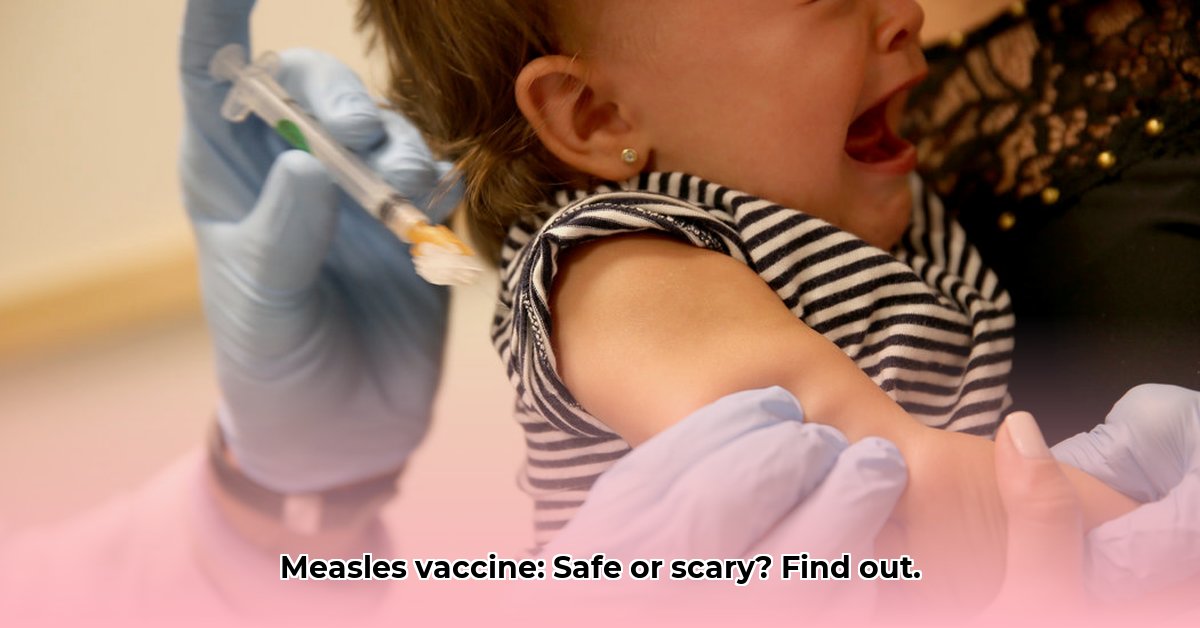
Understanding the MMR Vaccine: A Shield Against Measles
Eish, measles – that word alone brings back memories of a sick child, coughing and covered in a tell-tale rash. But thanks to the MMR (measles, mumps, rubella) vaccine, this once-common illness is now largely preventable. This article aims to provide clear, evidence-based information about the MMR vaccine's safety and effectiveness, addressing common concerns and promoting vaccination. We'll look at its efficacy, safety profile, debunk myths, and offer actionable steps for different stakeholders.
The MMR Vaccine: How Effective Is It, Really?
The MMR vaccine is incredibly effective. Studies show that two doses provide around 93-97% protection against measles. This high efficacy rate is why measles cases have plummeted globally. But how does it work? The vaccine introduces a weakened or inactive form of the virus, triggering your immune system to build antibodies without causing illness. These antibodies act as a powerful defense if you encounter the real measles virus. The difference between effectiveness and protection rates lies in how the vaccine performs in real-world settings vs. ideal laboratory conditions. Real-world effectiveness might be slightly lower due to factors like variations in individual immune responses.
Visual representation of MMR vaccine effectiveness (Insert graph here showing efficacy rates over time)
Is the MMR Vaccine Safe? Addressing Common Concerns
The MMR vaccine's safety has been rigorously studied. While mild side effects like fever or rash are possible, they are usually temporary and mild. Serious side effects are extremely rare. The frequently cited link between the MMR vaccine and autism has been repeatedly debunked by numerous large, well-designed studies. There is no evidence to support this claim. Continuous monitoring and surveillance systems ensure the ongoing safety of the vaccine. The benefits significantly outweigh the incredibly small risks.
Vaccine Hesitancy: Understanding the Barriers to Protection
Despite the overwhelming evidence, vaccine hesitancy persists. This often stems from misinformation spread through social media, distrust in healthcare systems, and fear of the unknown. Addressing this requires building trust and providing accurate, accessible information. Successful community-based programs demonstrate that engaging with communities and addressing specific concerns effectively can significantly increase vaccination rates.
Case Study: (Insert a brief case study here illustrating a successful community-based vaccination program, including its approach and results)
Global Vaccination Strategies: A Worldwide Effort
Globally, ensuring equitable access to the MMR vaccine remains a challenge. Different countries employ varying strategies based on their resources and epidemiological context. The World Health Organization (WHO) recommends two doses for optimal protection, though the specific scheduling may differ. Ensuring global vaccine access and equity requires collaboration and investment.
Taking Action: Practical Steps for Everyone
Here's how you can help stop measles:
1. For Parents:
- Talk to your doctor. Discuss your concerns and ask questions. They’re your best resource.
- Get information from reputable sources, like your doctor or websites of organisations such as the WHO or CDC. Avoid unreliable online sources.
- Talk to other parents. Sometimes, sharing experiences can ease anxieties.
2. For Healthcare Professionals:
- Communicate clearly and empathetically. Address parents' concerns with sensitivity and understanding.
- Back your advice with strong evidence. Explain why vaccination is important.
- Create a safe space for questions. Listen actively.
3. For Public Health Officials:
- Develop targeted campaigns. Use simple language and visuals relevant to specific communities.
- Ensure vaccine accessibility, especially for underserved areas.
- Partner with community leaders to build trust.
Conclusion: Protecting Our Communities, One Vaccine at a Time
The MMR vaccine is a powerful tool in preventing measles, a serious and highly contagious disease. While mild side effects can occur, serious complications are exceptionally uncommon, and the benefits of vaccination far outweigh any potential risks. By understanding the science, addressing concerns, and working together, we can protect our communities and finally stop measles. Get vaccinated, and encourage others to do the same. Let's make a difference, lekker.